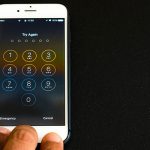
Multi-Factor Authentication Solutions
Passwords are increasingly easy to compromise. Multi-factor authentication adds additional layers of security to your accounts.
Protect Your Accounts & Systems From 99.9% Of Cyber Attacks
Add additional safeguards to your professional data with our comprehensive multi-factor authentication solutions.
Needed for compliance with security accreditations such as Cyber Essentials and some forms of business insurance, Akita’s multi-factor authentication services deliver robust protection against password-based attacks, phishing attempts, and identity theft.
Let our expert team of cyber security experts implement multi-factor authentication protocols tailored to your unique requirements, ensuring a seamless user experience that enhances your security.

What Is Multi-Factor Authentication (MFA)?
Multi-factor authentication adds additional layers of security to your accounts. Now, even if a criminal knows your password, they won’t be able to access your account.
The additional authentication comes in various forms such as an SMS, a voice call, one-time passcode, or push notification on a trusted device. It can also be biometric data such as a fingerprint scan.
MFA used to be referred to as 2FA (two-factor authentication), but now the phrase multi-factor authentication is preferred for any login system requiring two or more identity credentials.
Akita’s Multi-factor Authentication Services
Akita offers two multi-factor authentication solutions.
For Microsoft 365 systems we can help organisations activate Microsoft Authenticator as part of our support services or within the wider context of endpoint protection and mobile device management.
For the protection of other platforms and systems, we implement Duo – Cisco’s user-friendly, scalable access security platform that can help keep your business ahead of security threats.
This easy-to-use solution can be used to protect practically any type of software. Best of all it only takes seconds to use, so doesn’t disrupt your users.

Multi-Factor Authentication Solutions
How does MFA enhance security compared to single-factor authentication?
Passwords are increasingly easy to compromise. They can often be stolen, guessed or hacked and, as the same password is often used across different online accounts, there’s a high chance the password has already been compromised in a data breach.
Common password information is often made available online – maiden names, children’s names, birthdays and wedding anniversaries can all be searched for online and on social media.
With the computing power now available, cyber criminals can test billions of different password combinations a second in what is known as a brute force attack. So, even if you think your password is secure, it’s only a matter of time before someone is able to crack it in this way.
And with the rise of remote and hybrid working, there’s never been a more important time to secure remote access to your systems.

Multi-Factor Authentication Solutions
How Does Multi-Factor Authentication Work?
- Enter username and password as usual
- Use your phone to verify your identity
- Log in securely
Login as usual with your username and password, then use a device to verify that it’s you.
Akita can set up MFA to give permission via SMS, voice call, one-time passcode, smartphone app notification and more.
MFA can be used with smart phones, tablets, PCs and other forms of hardware.
What are the best practices for implementing MFA in an organisation?
Implementing multi-factor authentication solutions in an organisation requires a strategic approach to maximise security and minimise user friction.
Akita starts by conducting a thorough assessment to identify assets and systems that need protection. Our MFA solutions offer a variety of authentication methods, such as SMS, biometrics, and hardware tokens, to accommodate different user preferences and scenarios.
We then ensure seamless integration with existing IT infrastructure and applications. We’ll also prioritise user education and training to ease the transition, as well as highlight the importance of MFA in safeguarding sensitive information.
Additionally, we can work with organisations to implement policies for regular review and updating of authentication methods and ensure robust backup and recovery processes are in place.

